Heirlooms kept in Dowry Chests: How Women Preserved the Legacy of “Ayaş Domatesi”
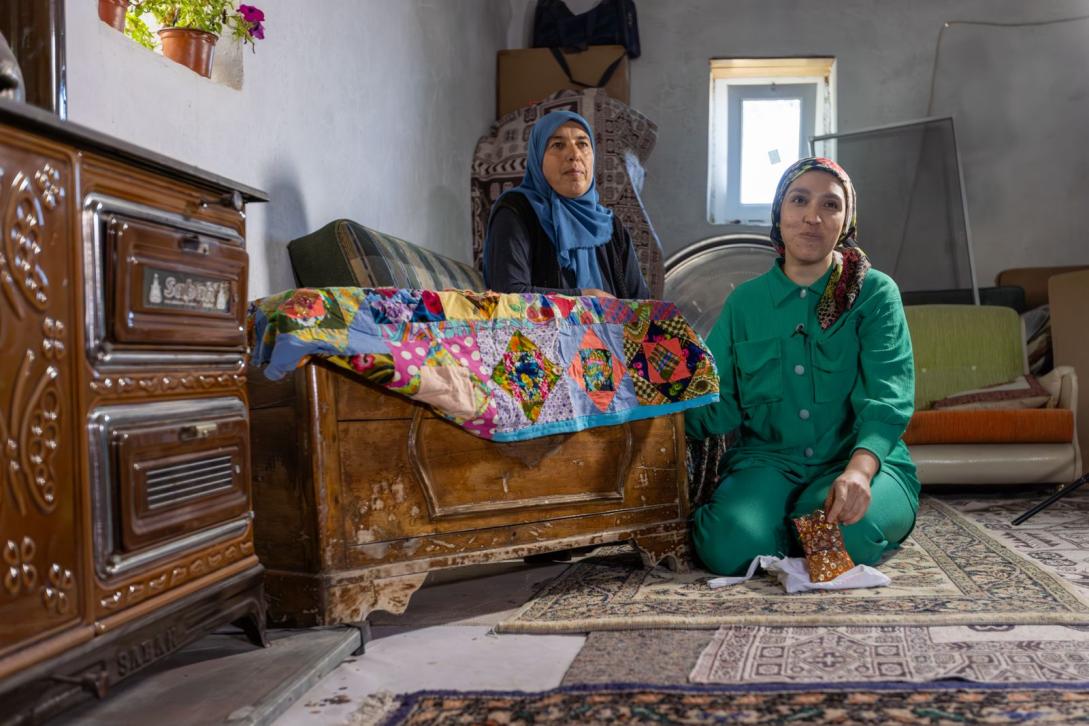
There’s a quiet confidence in her voice that comes with life experience. After all, things unfolded just as she predicted: as Ayaş Domatesi was on the brink of disappearing, seeds emerged from women’s dowry chests.
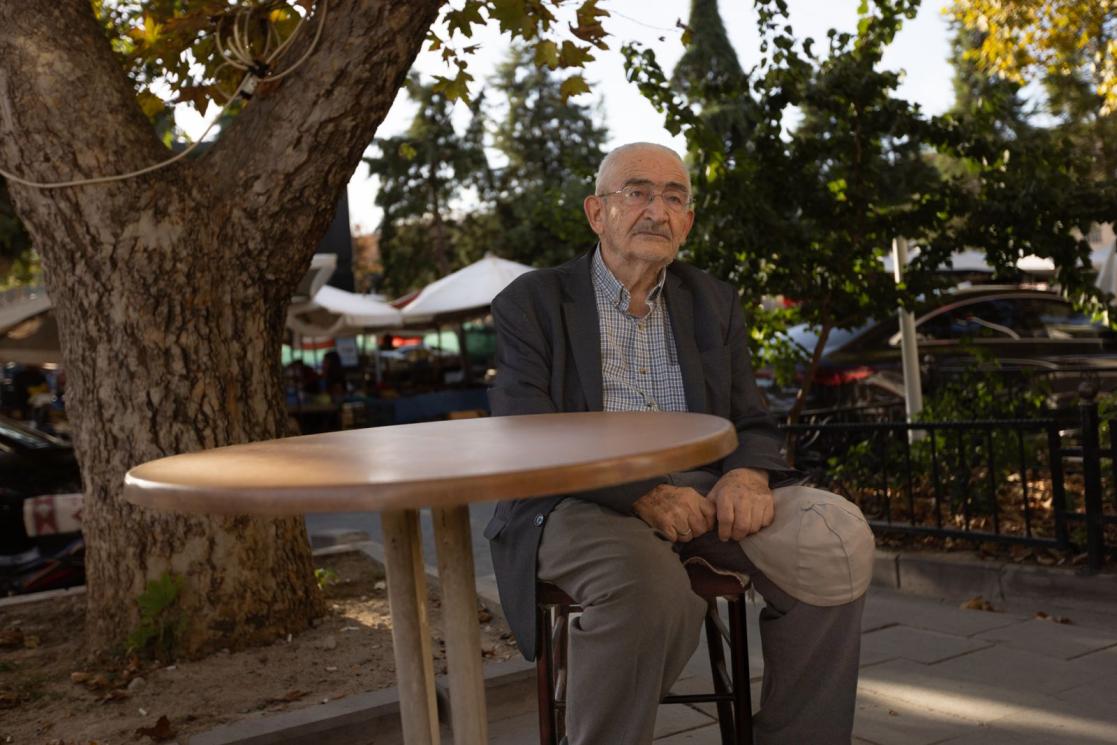
EUROPEAN UNION, 2025
Hilmi Başer from Ayaş
According to Hilmi Başer from Ayaş, producers abandoned the production of the thin-skinned and soft-textured Ayaş Domatesi because of difficulties regarding transport and marketing. Instead of the traditional Ayaş Domatesi seeds, imported seeds were planted in the fields.
Hilmi Başer’s son, the late businessperson Selami Başer, multiplied the seeds he found by chance in his friend’s mother’s chest and started growing Ayaş Domatesi. Then, the Ayaş Chamber of Agriculture rolled up its sleeves to register Ayaş Domatesi with the European Union (EU).
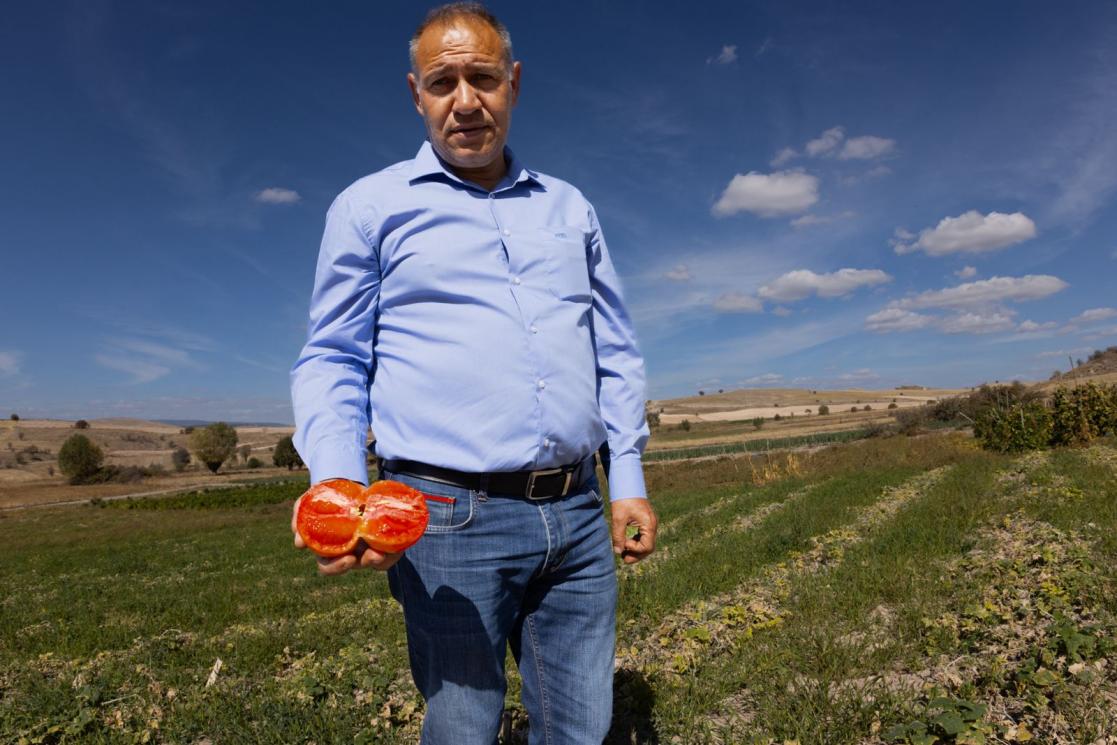
EUROPEAN UNION, 2025
Erdinç Polat Ateş, President of the Ayaş Chamber of Agriculture
Erdinç Polat Ateş, the President of the Ayaş Chamber of Agriculture, says: “Ayaş Domatesi is known for its high acidity, with a slightly sour yet incredibly delicious taste. Its exterior features distinct ridges. To protect its uniqueness, as other tomatoes were being sold under the name Ayaş Domatesi, we applied to the EU to officially distinguish Ayaş Domatesi and enhance its recognition.”
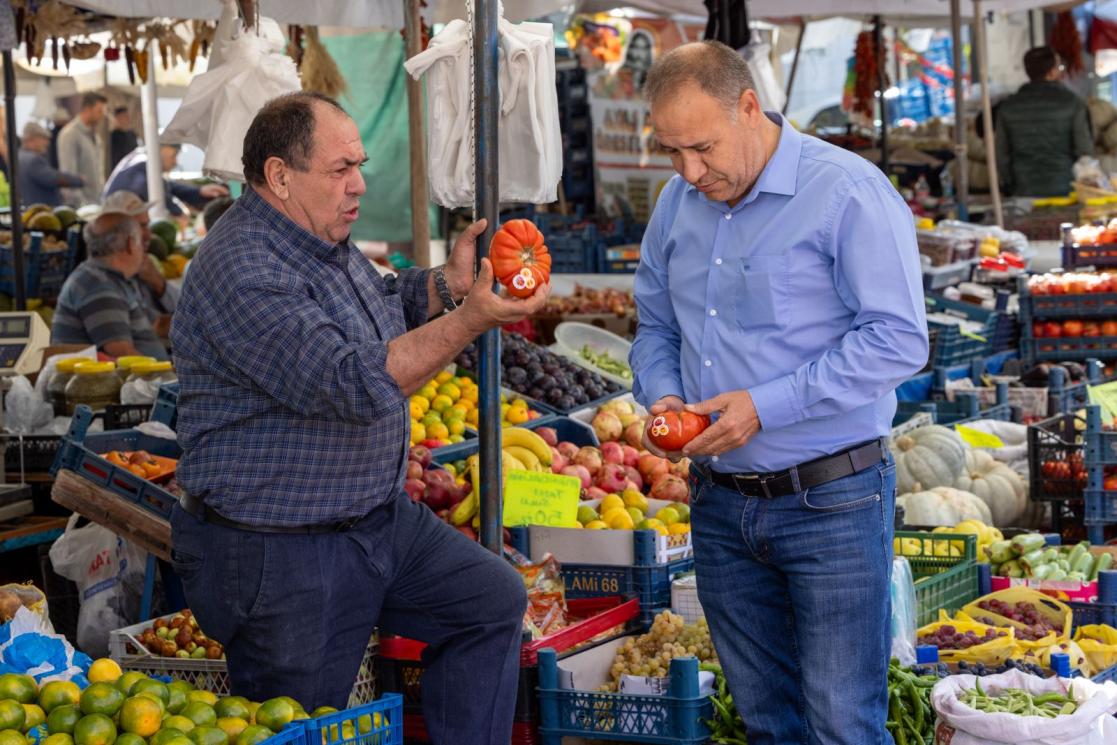
EUROPEAN UNION, 2025
Ayaş Domatesi's exterior features distinct ridges
The process yielded a positive outcome: the term “Ayaş Domatesi” was registered as a Protected Designation of Origin (PDO) by the EU, making it Ankara’s first product to receive an EU geographical indication. According to Erdinç Polat Ateş, producers have now resumed cultivating Ayaş Domatesi.
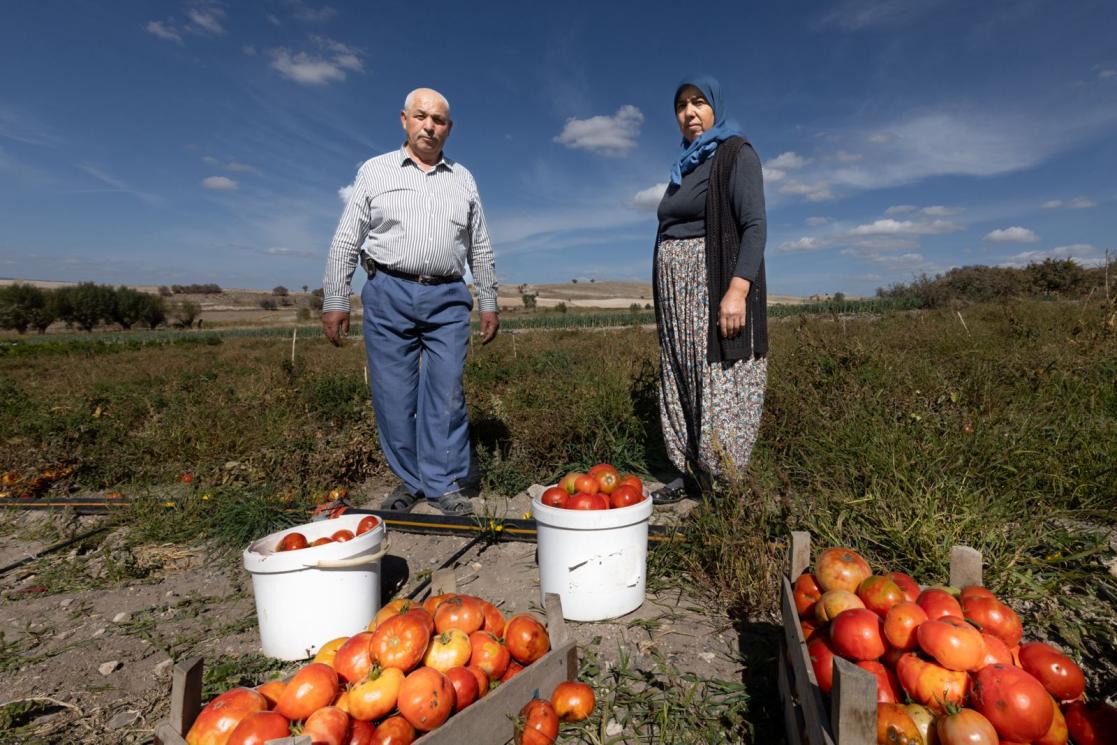
EUROPEAN UNION, 2025
Producers Recep and Kezban Sözen
Recep Sözen, a producer, explains: “With EU registration, Ayaş Domatesi has gained recognition, and people have started to appreciate its true value. Both the worth of our tomatoes and our income have increased. God willing, this progress will continue.”
Kezban Sözen, another producer, states: “We are now working to grow more Ayaş Domatesi. Our tomato paste and salads made with this remarkable ingredient are absolutely delicious.”
EU logos protect producers and consumers

EUROPEAN UNION, 2025
Ambassador Thomas Ossowski, the Head of the Delegation of the EU to Türkiye
The Head of the Delegation of the European Union to Türkiye, Ambassador Thomas Ossowski, says: “The EU’s PDO registrations are essential in elevating the prestige of local products like this exceptional tomato. By unlocking diverse market opportunities, we support the economic empowerment of producers. The EU logos safeguard these valuable products against fraud while also providing consumers with a guarantee of authenticity and quality in every PDO-marked purchase.”
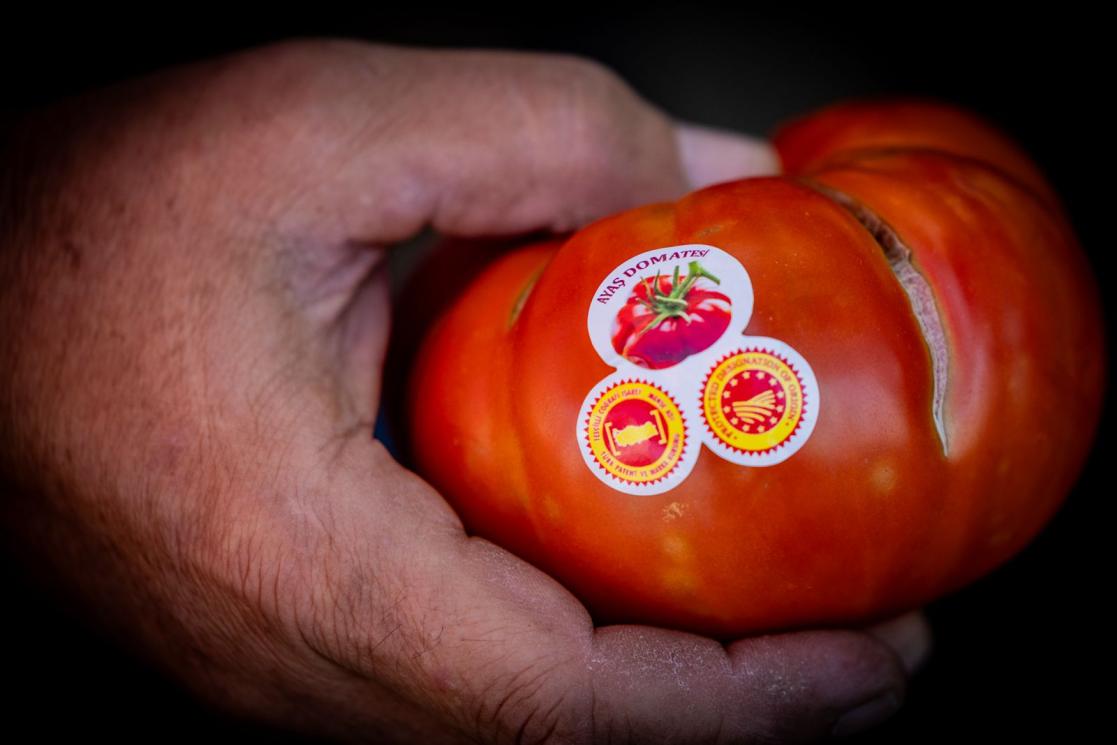
EUROPEAN UNION, 2025
Erdinç Polat Ateş, President of the Chamber of Agriculture of Ayaş, reflects: “Consumers can buy products with the EU’s PDO logo easily. These tomatoes are supervised from the seed to the finished product. If the farmer has planted Ayaş Domatesi, we, as a committee consisting of representatives from the Ayaş Chamber of Agriculture, the Ayaş District Directorate of Agriculture and the Ayaş Municipality, carry out the necessary inspections in the field.”
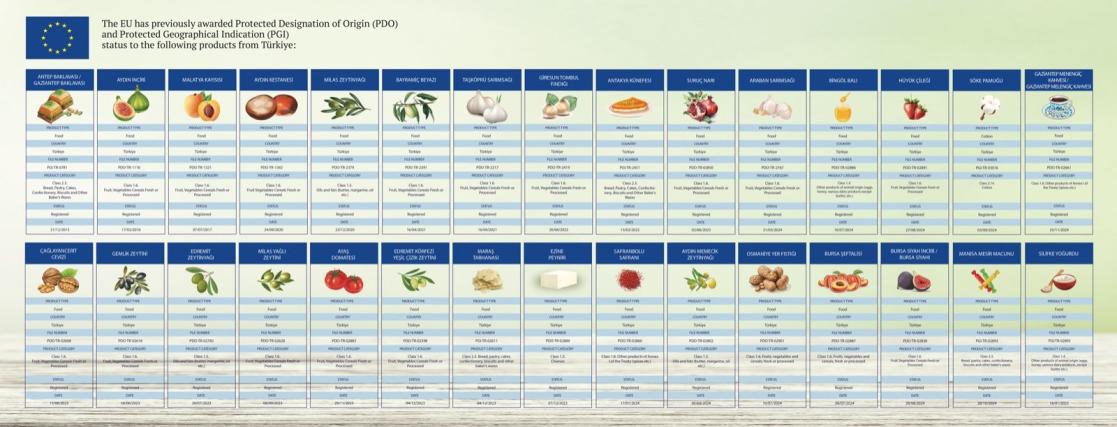
EUROPEAN UNION, 2025
The EU has awarded PDO or PGI (Protected Geographical Indication) status to the following products from Türkiye: Antep Baklavası/Gaziantep Baklavası, Aydın Kestanesi, Aydın İnciri, Bayramiç Beyazı, Malatya Kayısısı, Milas Zeytinyağı, Taşköprü Sarımsağı, Giresun Tombul Fındığı, Antakya Künefesi, Suruç Narı, Çağlayancerit Cevizi, Gemlik Zeytini, Edremit Zeytinyağı, Milas Yağlı Zeytini, Ayaş Domatesi, Edremit Körfezi Yeşil Çizik Zeytini, Maraş Tarhanası, Ezine Peyniri, Safranbolu Safranı, Aydın Memecik Zeytinyağı, Araban Sarımsağı, Bingöl Balı, Osmaniye Yer Fıstığı, Bursa Şeftalisi, Hüyük Çileği, Bursa Siyah İnciri/Bursa Siyahı, Söke Pamuğu, Manisa Mesir Macunu, Gaziantep Menengiç Kahvesi / Gaziantep Melengiç Kahvesi, and Silifke Yoğurdu.





